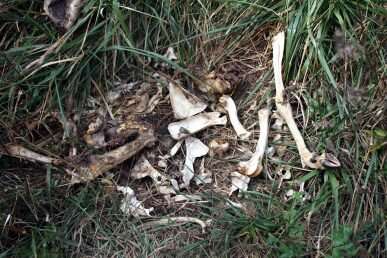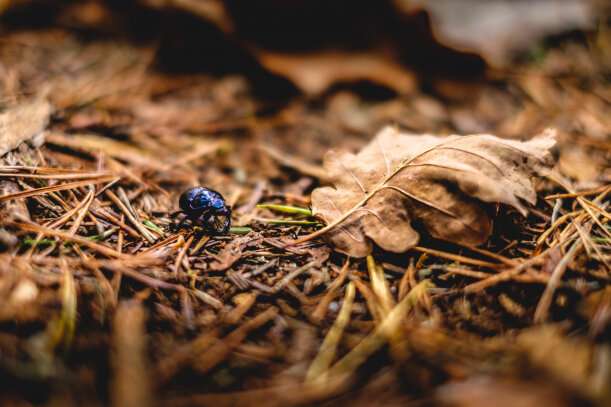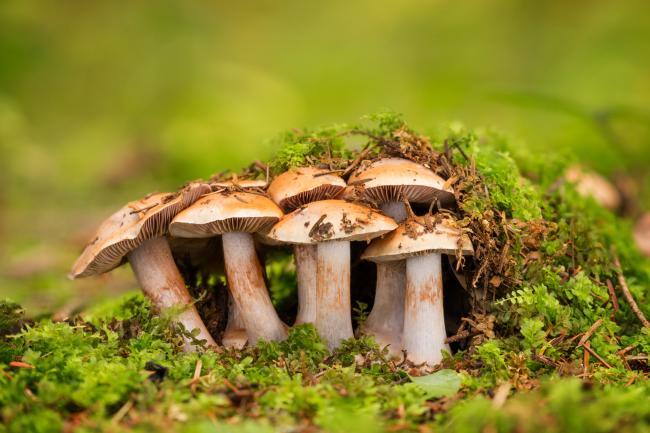 Amid concerns about gluten sensitivity, increasing numbers of people are avoiding wheat. Most have not been diagnosed with a wheat-related medical condition, yet they seem to feel better when they don't eat gluten-containing foods.
Amid concerns about gluten sensitivity, increasing numbers of people are avoiding wheat. Most have not been diagnosed with a wheat-related medical condition, yet they seem to feel better when they don't eat gluten-containing foods. Foodfarmnewstv
FADAMA 111 PROJECT ADDITIONAL FINANCING
Bestchange
Search This Blog
Labels
- News (460)
- Images speak (42)
- Press Release (39)
- livestock (31)
- FACAN (29)
- Editorial (25)
- GM (20)
- Seed (20)
- Biotechnology (19)
- wheat (16)
- Research (15)
- Cassava (14)
- AFAN (13)
- Global news (12)
- Special Report (12)
- Rice (11)
- Image Speaks (9)
- Maize (9)
- Soil (9)
- Yam (8)
- Bt cowpea (7)
- Coconut (7)
- Fertilizer (7)
- Cocoa (6)
- Disease (6)
- Ginger (6)
- Potato (6)
- World Soil Day (6)
- Animals (5)
- Apple (5)
- Oil Palm (5)
- Tomatoe (5)
- new (5)
- Cashew (4)
- Climate change (4)
- Fish (4)
- NCARD (4)
- Organic agric (4)
- World Food Day (4)
- Interview (3)
- National Council meeting on Agriculture. (3)
- Plant & genes (3)
- Plant genes (3)
- Project (3)
- Sesame (3)
- Shea butter (3)
- AI Research on Agriculture (2)
- Achia (2)
- African Cherry (2)
- Communique (2)
- Cotton (2)
- Extension services (2)
- Gene editing (2)
- HAPPY NEW YEAR (2)
- Horticulture (2)
- Insurance (2)
- Kenaf (2)
- Opinion (2)
- Sorghum (2)
- Sunflower (2)
- Tomato (2)
- Turmeric (2)
- bt cotton (2)
- seasons greetings (2)
- Artemesia (1)
- Biodiversity (1)
- Birds (1)
- Carrot (1)
- Discovery (1)
- Donkey (1)
- Facts sheets (1)
- Flash Flood (1)
- GES (1)
- GMO Rice (1)
- Garlic (1)
- Genetic (1)
- Groundnut (1)
- Jute bag (1)
- Locust bean (1)
- MERRY XMAS (1)
- Machinery (1)
- Mango (1)
- Milk (1)
- Okra (1)
- Post-harvest losses/ Food Waste (1)
- Presentation (1)
- Seaweed (1)
- Senate (1)
- Soybean (1)
- Tumeria (1)
- Walnut (1)
- flood (1)
- fruits (1)
- millet (1)
- water (1)
Total Pageviews
SPONSORED

Nigerian Institute of Soil Science- NISS
Translate Food Farm News to Hausa, Igbo, Yoruba and over 100 Languages
Latest News
Monday, 30 December 2019
Comparing heirloom and modern wheat effects on gut health
 Amid concerns about gluten sensitivity, increasing numbers of people are avoiding wheat. Most have not been diagnosed with a wheat-related medical condition, yet they seem to feel better when they don't eat gluten-containing foods.
Amid concerns about gluten sensitivity, increasing numbers of people are avoiding wheat. Most have not been diagnosed with a wheat-related medical condition, yet they seem to feel better when they don't eat gluten-containing foods. Sunday, 29 December 2019
Fossils of the future to mostly consist of humans, domestic animals
 As the number and technology of humans has grown, their impact on the natural world now equals or exceeds those of natural processes, according to scientists.
As the number and technology of humans has grown, their impact on the natural world now equals or exceeds those of natural processes, according to scientists.Saturday, 28 December 2019
Agricultural parasite avoids evolutionary arms race, shuts down genes of host plants

A parasitic plant has found a way to circumvent an evolutionary arms race with the host plants from which it steals nutrients, allowing the parasite to thrive on a variety of agriculturally important plants. The parasite dodder, an agricultural pest found on every continent, sends genetic material into its host to shut down host defense genes.
Friday, 27 December 2019
Plant-eating insects disrupt ecosystems and contribute to climate change

A new study from Lund University in Sweden shows that plant-eating insects affect forest ecosystems considerably more than previously thought. Among other things, the insects are a factor in the leaching of nutrients from soil and increased emissions of carbon dioxide. The researchers also establish that the temperature may rise as a result of an increase in the amount of plant-eating insects in some regions.
Thursday, 26 December 2019
Grain traits traced to 'dark matter' of rice genome

Domesticated rice has fatter seed grains with higher starch content than its wild rice relatives -- the result of many generations of preferential seed sorting and sowing. But even though rice was the first crop to be fully sequenced, scientists have only documented a few of the genetic changes that made rice into a staple food for more than half the world's population.
Wednesday, 25 December 2019
Fungi could reduce reliance on fertilizers
 Introducing fungi to wheat boosted their uptake of key nutrients and could lead to new, 'climate smart' varieties of crops, according to a new study.
Introducing fungi to wheat boosted their uptake of key nutrients and could lead to new, 'climate smart' varieties of crops, according to a new study.Tuesday, 24 December 2019
Merry Christmas
Sunflower: FG promises repositioning for larger market

The Federal Government (FG) of Nigeria has said she is ready
to make the value chains of sunflower productivity more robust through
effective policy with availability of subsidized inputs support to farmers for
more competitiveness in the international market. This was disclosed by the
officer in charge of Sunflower desk, Federal Ministry of Agriculture and Rural
Development (FMARD) Mr. Sunday Obasi during his presentation at the one day sensitization
programme organized by the Ministry of Industry, Trade and Investment (FMITI)
in Abuja recently.
Strategies of a honey bee virus
 The Israeli Acute Paralysis Virus is a pathogen that affects honey bees and has been linked to Colony Collapse Disorder, a key factor in decimating the bee population. Researchers have now analyzed in detail how the virus hijacks the cellular protein production machinery and misuses it for its own purposes. The research, published in The EMBO Journal, is an important step towards the development of strategies to fight the Colony Collapse Disorder.
The Israeli Acute Paralysis Virus is a pathogen that affects honey bees and has been linked to Colony Collapse Disorder, a key factor in decimating the bee population. Researchers have now analyzed in detail how the virus hijacks the cellular protein production machinery and misuses it for its own purposes. The research, published in The EMBO Journal, is an important step towards the development of strategies to fight the Colony Collapse Disorder.
Subscribe to:
Posts (Atom)





